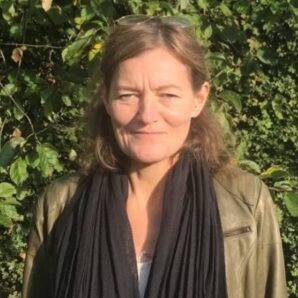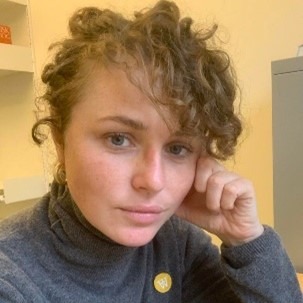General competencies in the training of future psychiatrists in a time of shortage of supervisors
- Signe Wegmann Düring

- Nov 14, 2023
- 3 min read
Updated: Dec 6, 2023
Comments by the Danish Psychiatric Association to the new recommendations by Danish Health Authorities for future medical doctors.
Co-authors
Lene Høgh, MD Chief Consultant in Psychiatry, Psychiatric Department Horsens, Mental Health Services of Central Jutland region, Denmark.
Camilla Lindahl, MD Department for Psychoses, Aarhus University Hospital, Mental Health Services of Central Jutland Region.
Helle B. Krogh, MD Department of Sexology, Mental health Services of Capital Region, Denmark.
The co-authors are members of the Board of the Danish Psychiatric Association.
The Danish Health Authorities have made new recommendations for future medical doctors in Denmark based on changes on patient demography, e.g., more people living longer with chronic conditions. It is recommended that future specialized medical doctors will have to have more general competencies, to enable them to handle patients with more complex disease patterns, reaching outside of their own specialized field. Disadvantages by highly specialized training programs, in any medical field, includes that diseases outside a specialty are at risk of being overlooked or not addressed, or that the patient is returned to the general practitioner for a re-referral, both an expensive and unsafe mode of action.
How will this impact psychiatry, an already broad specialty, and how can we keep the part of psychiatry that is highly specialized, sharp, whilst addressing the need to take care of medical issues outside of our field, and co-working with colleagues in other specialties? And can we use the seven roles as a medical doctor to strengthen that purpose?
The experiences with education in clinical psychiatry in Denmark is mostly focused on the need for specialist supervision for younger colleagues. However, there is a lack of supervisors, and the education is threatened by the need for specialist supervision with regards to psychopathology and psychopharmacology, and to ensure that specialists have the necessary time for supervision in those fields. The generalist competencies could perhaps be taught by more groups of colleagues than the supervisors. Three domains connected to more general competencies have the potential to support the intention of the authorities who wish to expand general competencies, namely collaboration, leadership and teaching/academia. The new demands to generalist competencies are already far ahead in psychiatry compared to smaller specialties, as psychiatry is already a specialty involving cross disciplinary collaboration, but perhaps we can improve further?
Collaboration is important when working with, for instance, the elderly patient, the substance using patient or whenever the primary sector is involved. Medical doctors in psychiatry can be trained in collaboration as a discipline in a broader sense, and evaluated by colleagues from many staff groups, including psychologists and nurses. Their feedback could be directly from them, and documentation can be used for the primary supervisor to evaluate the skills further. By using structural clinical feedback, we can ensure that a wider range of medical perspectives are part of the training of general skills.
Leadership is an intrinsic part of medical practice and medical doctors make lots of decisions every day. Leadership of other staff members is usually conducted by staff leaders and that can create tension when medical leadership and general leadership collide. Medical doctors are skilled and decisive leaders, but we need to develop leadership skills in general, and target talented leaders. To make clear exactly what leadership is, to all new medical doctors in psychiatry, as the future specialist will be required to be able to lead all kinds of staff members in the treatment and guide decision making through coordinated tasks, as well as delegating. Coworking groups in psychiatry have great potential in facilitating the learning of good leadership, and this will also assist collaboration in the long run.
Teaching or academic skills have traditionally been interpreted as research experience, but as artificial intelligence emerges and becomes part of decision making in psychiatry, more analytic and especially teaching skills are needed for the generalist to incorporate large datasets to improve personal medicine. Teaching skills must be prioritized in a structured way to ensure improvement, not only as an integrated part of work, but also of other staff members, and this should be supported by leadership. Traditionally medical doctors contribute to the training of others, and perhaps it is time, for instance, for leading nurses and specialist psychologists to have formal responsibility for aspects of the specialist training in psychiatry? So, whilst shortage of specialists in psychiatry is a remaining issue, training of a broader skillset can support those future specialists, not only by contributing to the field in a supporting manner, but by ensuring that all staff members retain a high quality in their work, by developing these three skills. □








